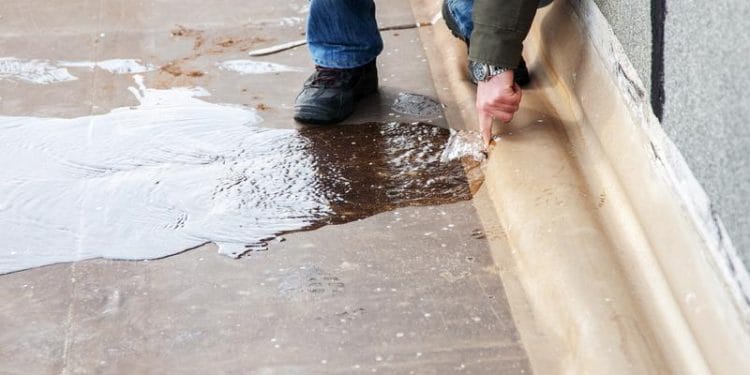A slab leak is a severe problem that causes extensive damage to your home if left unrepaired. Hiring plumbers in Melbourne is essential if you doubt you have a slab leak. If you want to understand slab leak repair better, you’re at the perfect place to get the proper knowledge. Let’s get started!
What is a Slab Leak?
A slab leak develops in the water pipes (usually made of copper) beneath your home’s concrete foundation.
The slab in your home is typically the concrete basement floor upon which the rest of your home gets built. Water lines lie beneath the slab, but in some buildings, professionals place the water lines in the slab itself. Slab leaks can cause serious problems such as wall and foundation cracks, high water bills, foul odours, low water pressure, uneven floors, and even cause your house to shift and sink if left untreated.
Just like you maintain blocked drains in Melbourne, It is critical to schedule regular plumbing maintenance once a year to help prevent slab leak damage.
How does Slab Leak Occur?
Homeowners in earthquake-prone areas remain at risk more than the general public. Earthquakes, even minor tremors that don’t make national headlines, can pressure plumbing pipes, causing them to crack.
While some places are unlikely to experience earthquakes, pressure can still impact the concrete slab. Stress frequently causes soil to shift, causing the slab foundation to move slightly. Even if you don’t live in an earthquake zone, heaving and shifting ground are caused by poor construction or soil erosion.
Consider the water flowing through the plumbing pipes using your x-ray vision. When the pipe comes into contact with a hard surface, such as when buried beneath the foundation, the natural vibrations can cause excessive wear on the line. The pipe develops a pinhole leak over time.
Furthermore, while copper is a durable material for water supply lines, it is not infallible. Age and corrosion affect even the strongest of us!
Slab Leak Indications You Must Notice
1. Spike in Water Bill
If you consider your water bill, you’ll notice if your reported water usage suddenly and inexplicably increases. Because a slab leak means your water will run 24 hours a day, water consumption will certainly increase. The water amount varies according to the size of the leak, but if you notice any change in your regular water bill, you should investigate it as a possible slab leak.
2. Reduced Water Leak
A water leak in your slab may cause a significant decrease in water pressure in other areas (such as faucets and showers). It is because an active leak causes less water to flow through your pipes.
3. Hot Spots
Hot water lines are frequently the source of slab leaks. When hot water leaks through the slab, the flooring directly above the leak may become warm or hot to the touch. If some areas of your flooring feel warm when you walk on them, this should get investigated as a possible slab leak. It will be most noticeable on solid floorings such as hardwood, linoleum, and laminate.
4. Wet Floor
Unfortunately, if the leak is severe enough, it can damage the above flooring. Be on the lookout for unexplained damp spots and a darkened appearance if you have a carpet. You might notice a warped appearance on hardwood, linoleum, and laminate flooring.
5. Mould and Mildew
It is common for moisture to become trapped beneath your floors when water leaks beneath your home. It can lead to mould and mildew growth over time, resulting in a musty odour throughout your home. Mould spores are harmful to your health and can quickly spread to walls and other areas of your home.
Mould and mildew can spread and cause widespread damage, necessitating the replacement of flooring, drywall, and other affected areas.
6. Rushing Water
If you suspect a slab leak, try turning off all water sources in your home (faucets, dishwasher, washing machine, etc.). Then, go to your first floor and listen carefully to the sound of rushing water. If you can still hear water running, you have a slab leak that needs to get fixed as soon as possible.
7. Pooled Water
Sometimes, a slab leak inside or outside your home may cause visible water pooling. If you notice water pooling, you must consider it a slab leak. Similarly, keep an eye out for standing water inside your home, mainly if it’s on the main floor and near plumbing appliances like your washing machine.
How to Fix Slab Leaks
Slab leak repair is notoriously tricky. It is because locating the leak necessitates digging into the concrete slab. To repair the broken pipe, The professional will remove the flooring to fix broken pipes, and your plumber will need to hammer into the concrete. If you need slab leak repair, contact a licenced, professional plumber. Our slab leak detection experts can locate the leak, assess its severity, and provide all required repair solutions.
Many people are concerned that repairing a slab leak will necessitate repiping their entire house. It is not always the case. Depending on the nature of the leak, rerouting your home’s plumbing may be preferable to repiping. Because delivering your plumbing after a slab leak does not require digging into the slab, it is quicker, less expensive, and causes less damage to your home.
Schedule Slab Leak Repair
What should you do if all signs point to a leak beneath your foundation? Like many other plumbing issues, slab leaks require more than a wrench and a quick fix.
If you suspect a slab leak, contact a plumber immediately. Your hot water plumber in Melbourne will collaborate with you to determine the best solution.
Contact NLK Plumbing if you need assistance detecting a slab leak or scheduling other plumbing services. Our experts are certified professionals who come up with modern and quick solutions for a fair price. Get in touch and let us know how we can help you.
















































